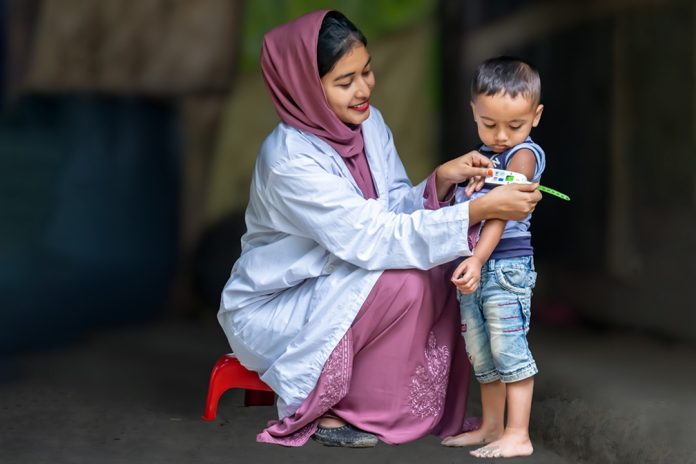The cycle of poverty spans generations, beginning with malnutrition during pregnancy, leading to low birth-weight babies who may grow up into stunted children, and later to ‘disadvantaged’ adults. This extends the cycle even further where adults struggle to generate income, resulting in intergenerational malnutrition, poor health, and acute poverty.
Conversely, well-nourished mothers are more likely to have healthy babies who are less vulnerable to illnesses. Therefore, prioritizing nutrition is pivotal for improving national health, reducing poverty, and fostering sustainable development. In this context, poverty alleviation initiatives must interrupt the cycle of malnutrition that hampers productivity and growth.
Nutrition is a core component of the Pathways to Prosperity for Extremely Poor People – European Union (PPEPP-EU) project which aims to enhance health outcomes, support early childhood development, and reduce stunting to establish a foundation for a productive life.
The nutrition-specific interventions of the project encompass all 16 direct nutrition interventions (DNIs) outlined by the National Nutrition Services (NNS) of the Government of Bangladesh. These include initiatives such as infant and young child feeding (IYCF), hygiene and sanitation promotion, micronutrient supplementation, deworming, consumption of nutrient-rich foods, acute malnutrition management, and maternal nutrition support. For these, collaborations are made among local health service providers, particularly Community Clinics, Union Health and Family Welfare Centers, Upazila Health Complexes and district hospitals.
Under the nutrition-sensitive interventions, PPEPP-EU establishes different household level farming activities, and ensures clean water, sanitation and hygiene (WASH) and primary healthcare services. These services are provided directly by the nutrition-staff and field-level livelihoods staff.
Through community mobilization, the project removes barriers that hinders nutrition outcome both at extreme poor household and at their community levels.


